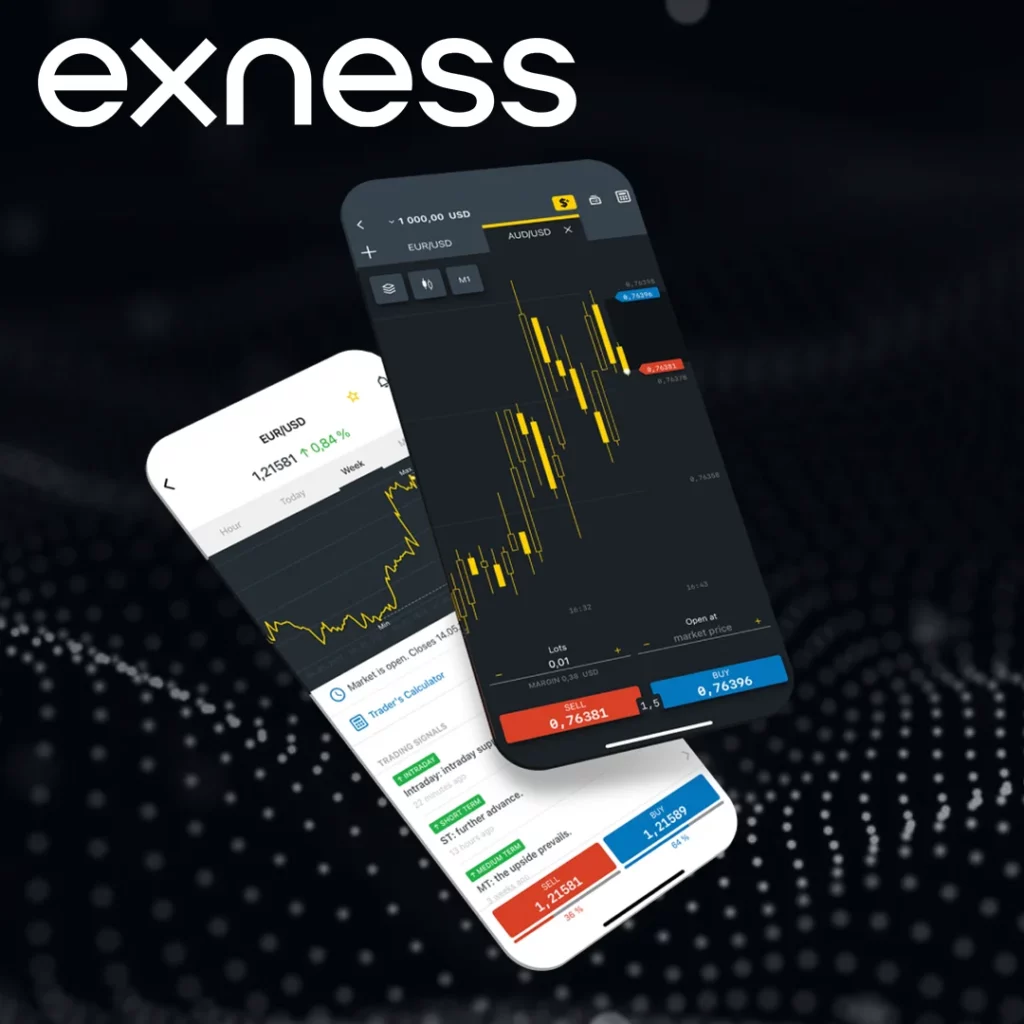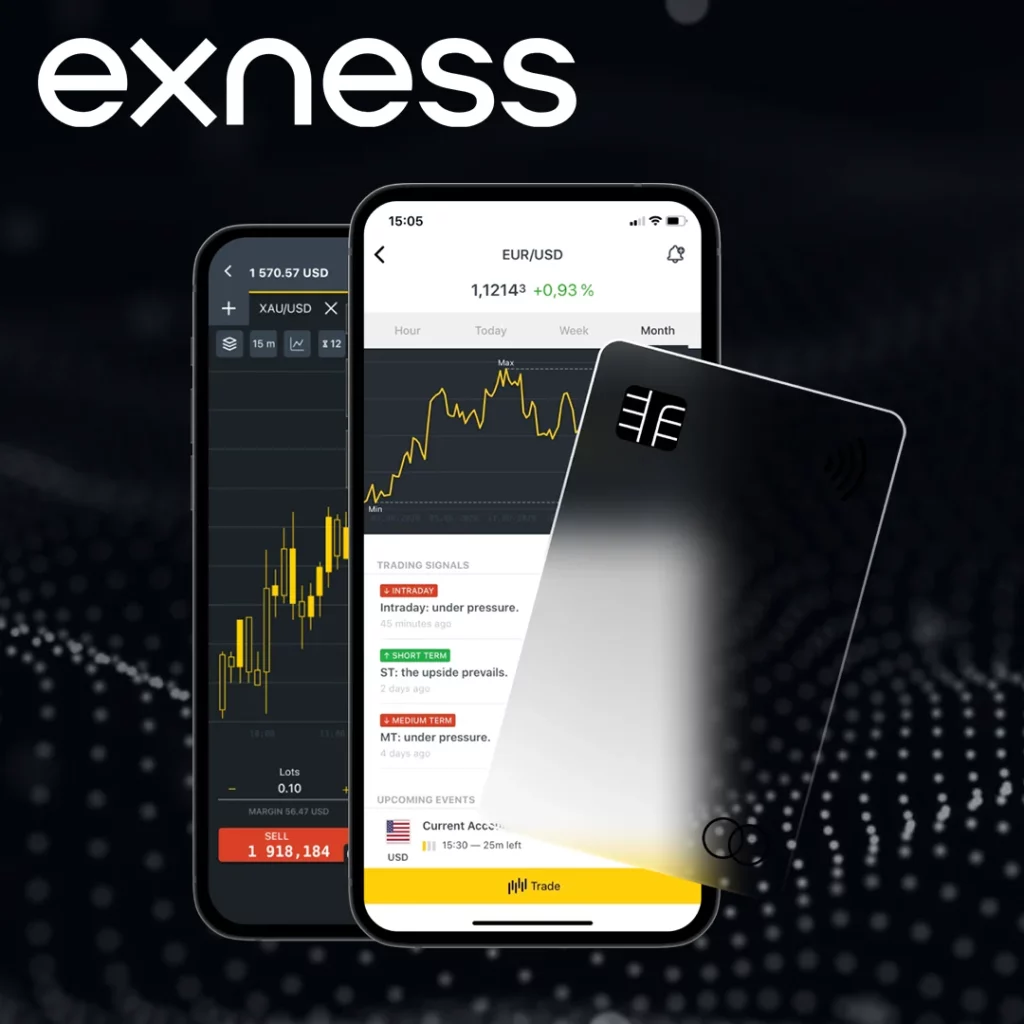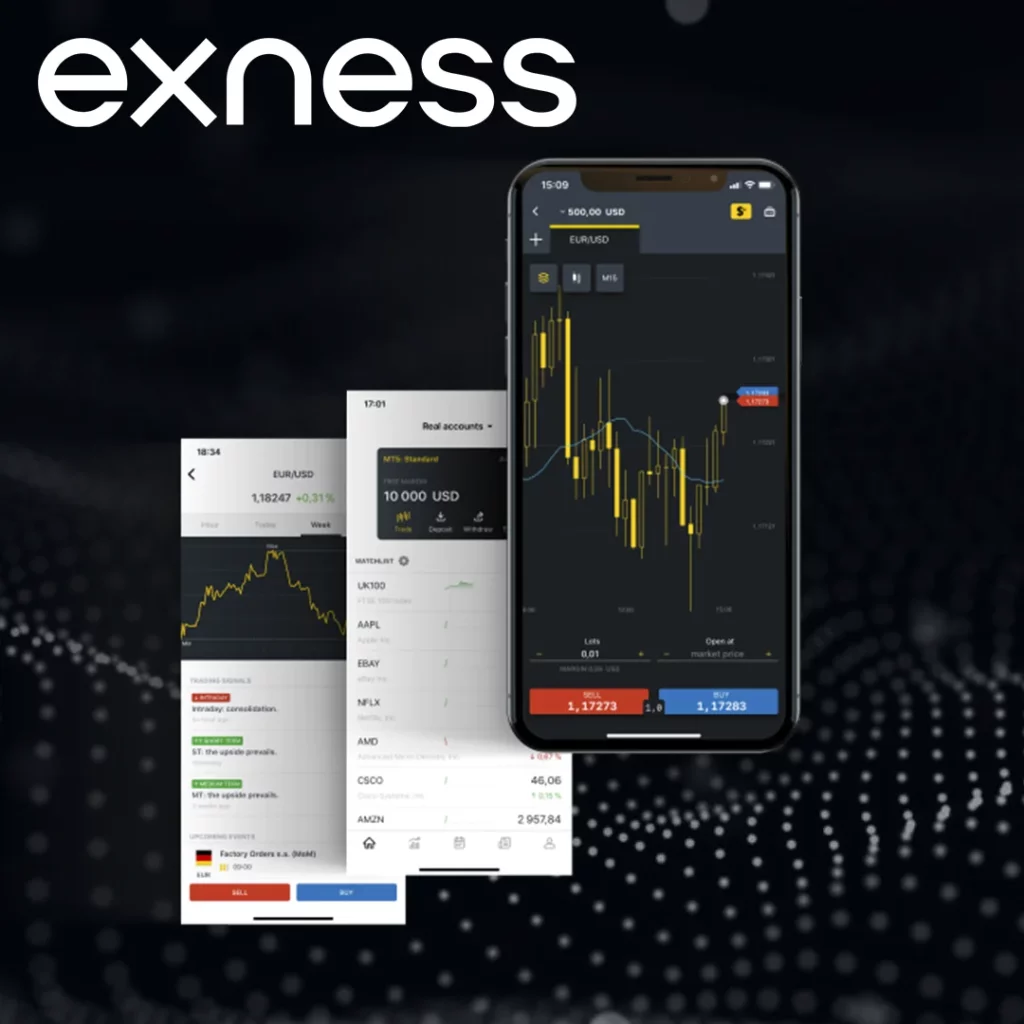In the world of Forex and CFD trading, one of the most critical aspects that traders must grasp is the concept of “spread.” The spread directly impacts a trader’s cost per transaction and, ultimately, their profitability. Exness, a global leader in online trading, offers competitive spreads on a variety of financial instruments. Understanding how spreads work, what affects them, and how to minimize their impact on trading can be essential for any trader looking to maximize their trading profits.
What Are Spreads?
A spread refers to the difference between the buying price (ask) and the selling price (bid) of an asset. This cost is incurred by traders when opening and closing a position. For example, if the EUR/USD pair has a bid price of 1.1200 and an ask price of 1.1205, the spread is 0.0005, or 5 pips.
Key Point: The spread is the “cost” of entering a trade. For a trade to be profitable, the market price must move in the trader’s favor enough to cover this cost.
Why Are Spreads Important?
The spread is a direct cost of trading and, in many cases, is the first hurdle traders must overcome to make a profit. The smaller the spread, the less the market has to move before a trade becomes profitable.
Here’s how the spread can impact different types of traders:
- Scalpers and Day Traders: These traders rely on small, frequent trades. For them, a narrow spread is essential to profitability.
- Swing Traders and Position Traders: These traders tend to hold positions for a longer duration. While spreads still matter, their impact is less significant compared to day traders.
- Algorithmic Traders: Traders using automated systems benefit from low spreads, as their bots execute numerous small trades at high frequency.

Types of Spreads at Exness
Exness offers different spread types that cater to various trading strategies. Below is a breakdown of the different types of spreads you can expect with Exness:
Fixed Spreads
Fixed spreads remain constant no matter what market conditions are. They are not affected by volatility, and traders know exactly what their transaction cost will be. Fixed spreads are beneficial when market conditions are volatile because they offer predictability.
| Instrument | Spread Range (pips) |
| EUR/USD | 0.3 – 1.0 |
| GBP/USD | 0.4 – 1.2 |
| USD/JPY | 0.5 – 1.5 |
| GOLD (XAUUSD) | 2.0 – 3.0 |
Floating Spreads
Floating spreads vary with market conditions. During periods of high volatility or low liquidity, spreads may widen, but during stable market conditions, they tighten. Exness offers tight floating spreads on most currency pairs and instruments.
| Instrument | Typical Spread (pips) | Spread Range (pips) |
| EUR/USD | 0.1 | 0.0 – 2.0 |
| GBP/USD | 0.2 | 0.1 – 3.0 |
| USD/JPY | 0.3 | 0.2 – 4.0 |
Raw Spreads
Raw spreads are the pure market spreads without any markup from Exness. Traders using raw spreads typically pay a small commission for each trade, but they benefit from the tightest possible spreads.
| Instrument | Spread Range (pips) | Commission (per 1 million USD) |
| EUR/USD | 0.0 – 0.1 | $3.50 |
| GBP/USD | 0.0 – 0.2 | $3.50 |
Zero Spreads
Zero spread accounts offer the tightest possible spreads, but they usually come with a commission for every trade. These are ideal for traders who want to minimize the spread cost and are comfortable with paying a commission on their trades.
| Instrument | Spread | Commission (per 1 million USD) |
| EUR/USD | 0.0 | $5.00 |
| GBP/USD | 0.0 | $5.00 |
Factors Affecting Spreads at Exness

Several factors can influence the size of spreads at Exness, which traders must consider in their trading strategies.
Liquidity
Liquidity is the measure of how easily an asset can be bought or sold without affecting its price. The more liquid an asset is, the tighter the spread tends to be. High-liquidity currency pairs like EUR/USD usually have much lower spreads compared to exotic pairs or stocks.
Volatility
Spreads tend to widen during periods of high volatility. Events like economic reports, interest rate changes, or geopolitical news can cause sudden market movements, making spreads larger. Conversely, during stable market conditions, spreads are narrower.
Market Hours
Exness spreads can vary based on the time of day. During peak trading hours—when major markets like London, New York, and Tokyo overlap—spreads are tighter due to higher trading volumes. During quieter hours, spreads might widen.
| Trading Session | Best Trading Pairs | Typical Spread Behavior |
| London-New York Overlap | EUR/USD, GBP/USD | Tightest spreads |
| Tokyo Session | USD/JPY, EUR/JPY | Moderate spreads |
| Sydney Session | AUD/USD, NZD/USD | Wider spreads |
Exness Account Type
The type of account you hold with Exness can have a significant impact on the spread. For instance, Standard accounts generally offer fixed or floating spreads, while Pro and Zero accounts offer raw or zero spreads.
Economic Events and News
Excessive market volatility due to news releases or major economic events can cause spreads to widen, even on highly liquid pairs. For instance, central bank rate decisions or the release of major data like Non-Farm Payrolls (NFP) can cause significant price swings and wider spreads.
Spreads on Various Instruments at Exness
Exness offers a wide array of trading instruments across multiple asset classes. Here’s a breakdown of the spreads you can expect on different instruments:
Forex Currency Pairs
Exness provides competitive spreads on all major currency pairs, as well as on minor and exotic pairs.
| Currency Pair | Spread Type | Spread (pips) |
| EUR/USD | Floating | 0.1 |
| GBP/USD | Floating | 0.2 |
| USD/JPY | Floating | 0.3 |
| USD/ZAR | Floating | 2.5 |
| EUR/TRY | Floating | 5.0 |
Cryptocurrencies
Cryptocurrencies tend to have wider spreads due to higher volatility and less liquidity compared to Forex pairs.
| Cryptocurrency | Spread Type | Spread (USD) |
| BTC/USD | Floating | $50 |
| ETH/USD | Floating | $10 |
| LTC/USD | Floating | $2 |
Metals
Precious metals, like gold and silver, also have competitive spreads.
| Metal | Spread Type | Spread (pips) |
| XAU/USD | Floating | 2.0 |
| XAG/USD | Floating | 3.0 |
Stocks
The spreads on stocks vary depending on the liquidity of the underlying company. High-volume stocks generally have lower spreads.
| Stock Symbol | Spread Type | Spread (pips) |
| AAPL | Floating | 0.50 |
| TSLA | Floating | 1.0 |
| META | Floating | 0.80 |
Indices
Spreads on indices reflect the liquidity and trading volume of the underlying assets.
| Index | Spread Type | Spread (pips) |
| NASDAQ 100 | Floating | 1.5 |
| FTSE 100 | Floating | 2.0 |
| DAX 30 | Floating | 2.5 |
How to Minimize the Impact of Spreads
There are several ways to reduce the impact of spreads on your trading:
- Choose the Right Account Type
If you’re looking for the tightest spreads, consider opening a Pro or Zero account. These account types offer either raw or zero spreads with small commissions. - Trade During Peak Hours
Trading during the busiest market hours, like the London-New York overlap, will generally result in tighter spreads due to increased market liquidity. - Use a Long-Term Strategy
Short-term strategies like scalping or day trading can make spreads feel more significant. Using longer-term strategies (e.g., swing trading) can reduce the impact of spreads as trades are held over longer periods. - Avoid Trading During Major Economic Announcements
Major announcements, such as interest rate decisions or economic reports, often cause volatility, which results in wider spreads. Try to avoid entering trades just before these events.

Conclusion
Spreads are an essential part of trading, and understanding how they work can be the key to maximizing profitability. Exness offers a variety of spreads, including fixed, floating, raw, and zero spreads, providing traders with flexibility in choosing the right setup for their strategy.
By understanding the factors that influence spreads and choosing the right account type, traders can optimize their trading conditions and reduce the impact of spreads on their profitability. Whether you’re trading Forex, cryptocurrencies, metals, stocks, or indices, Exness offers competitive spreads that align with the needs of both novice and professional traders.

Trade with a trusted broker Exness today
See for yourself why Exness is the broker of choice for over 800,000 traders and 64,000 partners.
FAQs
What is a spread in Forex trading?
A spread is the difference between the buy (ask) and sell (bid) prices of a currency pair or other financial instruments. It represents the cost of executing a trade.



